new posts in all blogs
Viewing: Blog Posts Tagged with: book I own, Most Recent at Top [Help]
Results 1 - 11 of 11
How to use this Page
You are viewing the most recent posts tagged with the words: book I own in the JacketFlap blog reader. What is a tag? Think of a tag as a keyword or category label. Tags can both help you find posts on JacketFlap.com as well as provide an easy way for you to "remember" and classify posts for later recall. Try adding a tag yourself by clicking "Add a tag" below a post's header. Scroll down through the list of Recent Posts in the left column and click on a post title that sounds interesting. You can view all posts from a specific blog by clicking the Blog name in the right column, or you can click a 'More Posts from this Blog' link in any individual post.
Where The Heart Is. Billie Letts. 1995. 376 pages. [Source: Bought]
The novel opens circa 1985. Novalee Nation, the heroine, is seven months pregnant. She is with her boyfriend, and they're both heading west. He's a man without integrity, to say the least. He does reluctantly give her a ten dollar bill so she can go buy some shoes when her own shoes are lost through the hole in the floor of his car. But he expects a good bit of change back. Or does he? Was he planning to abandon her at the Walmart all along? Or did he just get tired of waiting? Does it matter? The truth is that Novalee Nation is left at a Walmart in a small town in Oklahoma with only $7.77. She has no family to call, no friends either. So Novalee settles down in Walmart for the rest of her pregnancy, hiding when need be, so no one knows that she is living there. She ventures out during the day and meets people, meets the librarian, for example. By the end of her pregnancy, she's made a few friends. Now these new friends of hers don't know the truth exactly. But they're not the type of people who would care overly much about the truth. Novalee happens to find herself among the least judgmental folks she's ever met. The book spans seven years worth of drama. If the book has a theme it is one of 'home' and 'belonging' and 'family.'
Where the Heart Is was not a good match for me. I wanted a different book, perhaps. A book that kept the "down-to-earth" quirky characters perhaps, but, lost much of the smut. It isn't that Where the Heart Is is your traditional smutty romance--it isn't, far from it. But I thought there were certainly plenty of details that were tasteless. Why did readers need to follow Willy Jack's story at all???? Every chapter that focused on Willy Jack seemed tasteless and pointless. Why do we need to know about his time in prison? If the story had centered exclusively on Novalee Nation, would I have liked it a bit more? I think I would have. At least I wouldn't have hated it. Eliminating Willy Jack wouldn't have solved all the problems, one scene that was too much to take, and rightly so, was the child rape. The scene had every right to be disturbing. It was a horrible awful situation. Still. The details were too much. The profanity--the blasphemy--was also too much. © 2014 Becky Laney of
Becky's Book Reviews

By:
Becky Laney,
on 12/5/2014
Blog:
Becky's Book Reviews
(
Login to Add to MyJacketFlap)
JacketFlap tags:
Newbery,
J Fiction,
J Fantasy,
Candlewick,
2003,
MG Fiction,
MG Fantasy,
book I own,
books reviewed in 2014,
books reread in 2014,
Add a tag
The Tale of Despereaux. Kate DiCamillo. 2003. Candlewick Press. 272 pages. [Source: Bought]
There are so few rereads left in the year, yet, I couldn't miss rereading Kate DiCamillo's The Tale of Despereaux. (I first reviewed this one in
September 2007). I've also made a point of rereading
Because of Winn Dixie and
The Miraculous Journey of Edward Tulane.
I tend to like talking-mice books. I tend to like animal fantasy when it's well done. And in The Tale of Despereaux it is very well done. DiCamillo is a GREAT author. She is. She has a way with words, with phrasing things just so that happens to appeal to me. She's a good, solid storyteller. Her characters are always unique and memorable. That is definitely the case with The Tale of Despereaux.
Do you have a favorite Kate DiCamillo book?
Quotes:
“Stories are light. Light is precious in a world so dark. Begin at the beginning. Tell Gregory a story. Make some light.”
“There are those hearts, reader, that never mend again once they are broken. Or if they do mend, they heal themselves in a crooked and lopsided way, as if sewn together by a careless craftsman. Such was the fate of Chiaroscuro. His heart was broken. Picking up the spoon and placing it on his head, speaking of revenge, these things helped him to put his heart together again. But it was, alas, put together wrong.”
“Reader, you must know that an interesting fate (sometimes involving rats, sometimes not) awaits almost everyone, mouse or man, who does not conform.”
“Once upon a time," he said out loud to the darkness. He said these words because they were the best, the most powerful words that he knew and just the saying of them comforted him.”
“Despereaux looked at his father, at his grey-streaked fur and trembling whiskers and his front paws clasped together in front of his heart, and he felt suddenly as if his own heart would break in two. His father looked so small, so sad.
"Forgive me," said Lester again.
Forgiveness, reader, is, I think, something very much like hope and love - a powerful, wonderful thing.
And a ridiculous thing, too.
Isn't it ridiculous, after all, to think that a son could forgive his father for beating the drum that sent him to his death? Isn't it ridiculous to think that a mouse ever could forgive anyone for such perfidy?
But still, here are the words Despereaux Tilling spoke to his father. He said, "I forgive you, Pa."
And he said those words because he sensed it was the only way to save his own heart, to stop it from breaking in two. Despereaux, reader, spoke those words to save himself.”
© 2014 Becky Laney of
Becky's Book Reviews
Frankenstein. Mary Shelley. 1818/1831. Oxford World's Classics. 250 pages. [Source: Bought]
Almost every time I read it, I focus on something new, something that I might have missed, something that I hadn't considered before. I thought I would share my observations with you instead of a traditional review.
Stories. Frankenstein is a story within a story. But it's more than that. It's a text that utilizes stories and storytelling even within that framework. The first story, of course, is the one Robert Walton is communicating to his sister, Margaret, through letters. After the first few letters, Walton stops being so introspective and focuses on telling someone else's story. Victor Frankenstein's story. This is written in the letters in first person, as if Victor himself were telling the story--sharing it. Within that big story, are dozens of little stories. The story of how his parents met. The story of his birth and childhood. The story of how Elizabeth was adopted. The story of how he became interested in science. The story of his mother's death. The story of his going away to university. The story of his madness--his obsession--and how he came to create life. The story of his sickness and recovery. The story of his learning about his brother's death/murder. The story of Justine. You get the idea. Each story is crafted and shaped. These stories are how he sees himself and the world, his place in it. Some of the stories are personal and a vital part of the plot. Other stories are more like asides. But this isn't Victor's story alone. Midway through the book, readers learn the creature's story. Even though this is written in first person though the eyes of the creature--the monster--the words are for better or worse being filtered through Victor Frankenstein's memory. He's telling what the monster said. He's telling what the monster heard. And Robert Walton is then passing along Frankenstein's story of the events and conversations. The creature is a storyteller as well. He recalls his life, his memories, his desires and needs. But he also focuses in particular on one family, one French family living in exile. This section has multiple stories. Including one focusing on a young woman. Though it may seem like an aside to readers, the stories matter very much to the narrator, the creature. The stories are providing for him a framework of the world, of how it works, of what life and love are all about. The stories resonate with the creature. He has seen love. He has seen family. He has seen fellowship and community. Because he has seen this, he feels the lack of it in his own life. But it isn't just the unfolding story that he personally witnesses. He is also shaped by the stories--the words--in the books he oh-so-conveniently is able to read. Words and stories matter. The stories we tell ourselves about ourselves, the stories we share with others, they all matter. For example, I think the story the creature told himself over and over and over again was it is all Victor's fault. He made me. He gave me life. He made me this ugly, this revolting. He made me this large and strong. He left me--he abandoned me. He didn't love me. He never loved me. He rejected me. He made it so everyone would reject me. Why does everyone reject me? It's his fault. It's all his fault. He made me have killing-hands. He made me have killing-thoughts. He didn't show me a better way. He didn't teach me. He didn't raise me. I had to learn everything all by myself. It is his fault. I'm not responsible. Why would I be? It is his fault! If it wasn't for him, I wouldn't be so miserable, so alone, so full of angst. I wouldn't feel pain or hunger or thirst. I wouldn't feel at all. The monster has his Job moments. One last thing, Victor Frankenstein speaks of the power of words, of persuasion. He warns that the creature has a way with words, that he can manipulate people by his persuasiveness. He warns Walton not to let himself be manipulated by the creature's story--his words and pleas. Is there any truth to this? Is the creature trying to masquerade himself as an angel of light? His actions say one thing: he's a killer, a murderer, he premeditates at least some of his crimes. His words say another: no one loves me, everyone runs from me, it's all HIS fault.
Questions. It's hard to read Frankenstein without questions. Who is the real monster? Who should be held responsible? Is there anyone who shouldn't be held responsible? Why is human life valued so little by ego-obsessed people? Why does Walton idolize Frankenstein?
Victor Frankenstein, Robert Walton, and the creature share a few things in common. They are introspective, moody, obsessed, and lonely. True, there are differences in their obsessions. Robert Walton is obsessed with glory, with adventure, with discovering the Northwest Passage. Walton has spent years if not decades obsessed with the North Pole, with the arctic regions. This started as a boy with books, with stories and words. His dream shifted slightly for a brief period of time when he wanted to be a poet, but, ultimately he came back to his first love. He didn't give up his poetic personality/nature however. Victor Frankenstein is first obsessed with science, with electricity, with creating life. This playing God leads to no good--it leads to madness and murder. I believe the madness started long before he was successful. I have never understood how he could piece together this creature--this eight-foot creature--and it is only when he is alive that he realizes that it is monstrous and ugly and unnatural and threatening. Why make it eight-feet? Why make it so unhuman? Regardless, having created life, he then becomes obsessed with destroying it--with murdering his demon-creation, his monster. His only reason to live is to track down and kill the monster. The monster's obsession? Well, he's driven by anger and pain. He wants to HURT Frankenstein. He is acting out, having murderous temper-tantrums all to get the attention of the one who gave him life, his father, his creator. He wants what he can't have. He wants love and acceptance. He wants to belong. He wants companionship and family. He wants to be happy. He wants to be treated fairly and humanely. He doesn't want to be judged based on appearances. He taunts and haunts his creator. He wants Frankenstein to be just as miserable and desperate as he is.
Quotes:
Robert Walton meets Victor Frankenstein:
In the morning, however, as soon as it was light, I went upon deck and found all the sailors busy on one side of the vessel, apparently talking to someone in the sea. It was, in fact, a sledge, like that we had seen before, which had drifted towards us in the night on a large fragment of ice. Only one dog remained alive; but there was a human being within it whom the sailors were persuading to enter the vessel. He was not, as the other traveller seemed to be, a savage inhabitant of some undiscovered island, but a European. When I appeared on deck the master said, "Here is our captain, and he will not allow you to perish on the open sea." On perceiving me, the stranger addressed me in English, although with a foreign accent. "Before I come on board your vessel," said he, "will you have the kindness to inform me whither you are bound?" You may conceive my astonishment on hearing such a question addressed to me from a man on the brink of destruction and to whom I should have supposed that my vessel would have been a resource which he would not have exchanged for the most precious wealth the earth can afford. I replied, however, that we were on a voyage of discovery towards the northern pole. Upon hearing this he appeared satisfied and consented to come on board. Good God! Margaret, if you had seen the man who thus capitulated for his safety, your surprise would have been boundless. His limbs were nearly frozen, and his body dreadfully emaciated by fatigue and suffering. I never saw a man in so wretched a condition. We attempted to carry him into the cabin, but as soon as he had quitted the fresh air he fainted. We accordingly brought him back to the deck and restored him to animation by rubbing him with brandy and forcing him to swallow a small quantity. As soon as he showed signs of life we wrapped him up in blankets and placed him near the chimney of the kitchen stove. By slow degrees he recovered and ate a little soup, which restored him wonderfully. Two days passed in this manner before he was able to speak, and I often feared that his sufferings had deprived him of understanding. When he had in some measure recovered, I removed him to my own cabin and attended on him as much as my duty would permit. I never saw a more interesting creature: his eyes have generally an expression of wildness, and even madness, but there are moments when, if anyone performs an act of kindness towards him or does him any the most trifling service, his whole countenance is lighted up, as it were, with a beam of benevolence and sweetness that I never saw equalled. But he is generally melancholy and despairing, and sometimes he gnashes his teeth, as if impatient of the weight of woes that oppresses him.
Robert shares his big, big dream with Victor:
I was easily led by the sympathy which he evinced to use the language of my heart, to give utterance to the burning ardour of my soul and to say, with all the fervour that warmed me, how gladly I would sacrifice my fortune, my existence, my every hope, to the furtherance of my enterprise. One man's life or death were but a small price to pay for the acquirement of the knowledge which I sought, for the dominion I should acquire and transmit over the elemental foes of our race. At first I perceived that he tried to suppress his emotion; he placed his hands before his eyes, and my voice quivered and failed me as I beheld tears trickle fast from between his fingers; a groan burst from his heaving breast. I paused; at length he spoke, in broken accents: "Unhappy man! Do you share my madness? Have you drunk also of the intoxicating draught? Hear me; let me reveal my tale, and you will dash the cup from your lips!"
And so it begins...
Yesterday the stranger said to me, "You may easily perceive, Captain Walton, that I have suffered great and unparalleled misfortunes. I had determined at one time that the memory of these evils should die with me, but you have won me to alter my determination. You seek for knowledge and wisdom, as I once did; and I ardently hope that the gratification of your wishes may not be a serpent to sting you, as mine has been. I do not know that the relation of my disasters will be useful to you; yet, when I reflect that you are pursuing the same course, exposing yourself to the same dangers which have rendered me what I am, I imagine that you may deduce an apt moral from my tale, one that may direct you if you succeed in your undertaking and console you in case of failure. He then told me that he would commence his narrative the next day when I should be at leisure. This promise drew from me the warmest thanks. I have resolved every night, when I am not imperatively occupied by my duties, to record, as nearly as possible in his own words, what he has related during the day. If I should be engaged, I will at least make notes. This manuscript will doubtless afford you the greatest pleasure; but to me, who know him, and who hear it from his own lips—with what interest and sympathy shall I read it in some future day! Even now, as I commence my task, his full-toned voice swells in my ears; his lustrous eyes dwell on me with all their melancholy sweetness; I see his thin hand raised in animation, while the lineaments of his face are irradiated by the soul within. Strange and harrowing must be his story, frightful the storm which embraced the gallant vessel on its course and wrecked it—thus!
I've reviewed Frankenstein several times in the past.
2007.
2009.
2010.
2011.
© 2014 Becky Laney of
Becky's Book Reviews
The 101 Dalmatians. Dodie Smith. 1956/1989 Penguin. 192 pages. [Source: Owned Since Childhood]
I have been meaning to read this one for decades. The Disney adaptation is one of my favorites. It is. I love and adore it.
Kanine krunchies can't be beat they make each meal a special treat. It's just a satisfying movie that is practically perfect in every way.
So. What did I think of the book? Well. It's different that's for sure. Missis and Pongo are the lovely dalmatian couple with fifteen adorable puppies. The human couple, Mr. and Mrs. Dearly, seeks out another dalmatian wet nurse, if you will. The vet says that no dog can successfully nurse fifteen puppies and have them all thrive. So seven of the pups become Perdita's to raise. The three dogs become quite close friends. The happy couple pities Perdita for she lost her love, Prince, and her own puppies. (Mr. Dearly does NOT write songs. He's an accountant or something along those lines. The book merely says he's a financial wizard who did something or other for the government.)
Cruella de Vil and her HUSBAND are social acquaintances of Mr. and Mrs. Dearly. She wears fur year-round. Her husband is a furrier, and, she doesn't hide the fact that she married him because of it.
The basics of the story are the same. Cruella de Vil wants the puppies and hires someone to steal the puppies. True, there are two nannies tending to the puppies instead of just one. But, the end result is the same. The puppies are gone. Pongo and Missis do the twilight bark, eventually they hear back that the puppies are found.
I liked this one.
© 2014 Becky Laney of
Becky's Book Reviews
This is The Baby. Candace Fleming. Illustrated by Maggie Smith. 2004. FSG. 40 pages. [Source: Book I Own]This is the baby who hates to be dressed."No! No! Nooo!"This is the diaper, often a mess, that goes on the baby who hates to be dressed."No! No! Nooo!"This is the T-shirt, wrinkled a lot, that snaps over the diaper, often a mess, that goes on the baby who hates to be dressed."No! No! Nooo!"This is the sweater, itchy and hot, that covers the T-shirt, wrinkled a lot, that snaps over the diaper, often a mess, that goes on the baby who hates to be dressed."No! No! Nooo!"These are the jeans, stiff in the knee....I love this one. I do. I like
true picture books. Stories that reflect every day situations and struggles, stories that look at life realistically. The book is also fun and playful. I also like picture books that are repetitive or that have refrains, making it easy for little ones to join in during the reading.
In
This is the Baby, readers meet one stubborn mother and one just-as-stubborn baby. Who will win the battle?!
This one has a good twist on it, a bit predictable perhaps, but still fun! I would definitely recommend this one to parents who have little ones who like to wiggle and giggle free and undressed...
Text: 5 out of 5
Illustrations: 4 out of 5
Total: 9 out of 10
Dig! Andrea Zimmerman and David Clemesha. Illustrated by Marc Rosenthal. 2004. Harcourt. 32 pages. [Source: Book I Own]Mr. Rally drives a big yellow backhoe. It has a scooper and a pusher. Mr. Rally loves to dig in the dirt. So does his dog, Lightning. Mr. Rally buckles his overalls and pulls on his boots. He has five big digging jobs to do today. He counts them. One. Two. Three. Four. Five. Job #1 up ahead. One is a bridge on the ridge. Dig is a fun picture book that I really enjoy. Readers meet Mr. Rally and his dog, Lightning.
Readers see the two get excited about digging in the dirt. This one has a repeating refrain: "Dig up rock and dig up clay! Dig up dirt and dig all day!" This refrain is repeated at all five jobs, as is the congratulating refrain of "Good job, Mr. Rally! Good job, Lighting!"
After a long day of work, you might think Mr. Rally would want to go home and relax. And he does, in his own way, I suppose. But at the end of his day, Mr. Rally can still be found digging alongside Lightning. He loves to dig for work and play, of course. He loves to dig at home in his garden.
Text: 4 out of 5
Illustrations: 4 out of 5
Total: 8 out of 10
© 2014 Becky Laney of
Becky's Book Reviews
All-of-a-Kind-Family. Sydney Taylor. 1951. 190 pages. [Source: Bought]
I enjoyed rereading All-of-a-Kind Family by Sydney Taylor. This historical fiction novel is set in New York City around 1912. When the novel opens, there are five sisters: Ella, Henrietta (Henny), Sarah, Charlotte, and Gertie. They are a "steps-and-stairs" family according to the oh-so-friendly librarian Miss Allen. (Yes, the librarian plays a good role in this one!) The chapters are episodic, occurring over the course of a year. The chapters detail what life was like in a Jewish household during the early years of the new century. Some chapters are about everyday things like shopping, cleaning, going to the library, eating in bed, picky-eating at the table, etc. Other chapters are about holidays or vacations: Purim, Passover, 4th of July, visiting Coney Island, etc. My least favorite chapter remains the same: the hiding of buttons to motivate the sisters into cleaning.
I liked this one. I like it because it is old-fashioned and simple and just good. I like it because it captures a special time and place in American history.
Have you read this one? What did you think?
© 2013 Becky Laney of
Becky's Book Reviews

By:
Becky Laney,
on 4/16/2013
Blog:
Becky's Book Reviews
(
Login to Add to MyJacketFlap)
JacketFlap tags:
j historical,
books reviewed in 2013,
series books,
J Fiction,
J Fantasy,
Narnia,
children's classic,
1950,
book I bought,
book I own,
Add a tag
The Lion, The Witch, and The Wardrobe. C.S. Lewis. 1950. HarperCollins. 224 pages.
Once there were four children whose names were Peter, Susan, Edmund, and Lucy. This story is about something that happened to them when they were sent away from London during the war because of the air-raids. The Lion, The Witch, and the Wardrobe is one of my favorite, favorite children's books. Lucy Pevensie is one of my favorite, favorite heroines. And I love and adore this oh-so-delightful fantasy-adventure novel.
It is THE FIRST book in the Chronicles of Narnia series. It is the only book worthy of being considered as THE FIRST book in the series.
In The Lion, the Witch, and The Wardrobe, four children are sent into the country during World War II. Peter, Susan, Lucy, and Edmund are just beginning to settle into their new home when Lucy stumbles into the magical world of Narnia. At first, Lucy is the only one. But Edmund also comes into Narnia before the others. And while there he is fooled by the "Queen" of Narnia. But Narnia soon sees all four children.
Narnia is not a land at peace. Not at all. For the land is under a spell--an enchantment--the White Witch--the supposed Queen of the land--has made it always winter and never Christmas. And the lives of the children--all four children--are in grave danger when they're in Narnia. For there is a prophecy that four humans--two sons of Adam and two daughters of Eve--will come to rule the land as Kings and Queens and restore peace and order to the kingdom. The children's journey to Narnia, their quest to meet Aslan at the Stone Table, and their battle to save Narnia and their brother from the grasp of the evil and wicked witch....are unforgettable adventures that deserve to be experienced again and again by readers of all ages. You're never too old to experience the magic of Narnia.
While the movie depicts them as being doubtful and regretting setting foot in Narnia and shows them wanting to go home
all the time and leave the fighting for others to do, the book tells a different story.
The children are mostly welcoming to the adventure before them. The book perhaps has less drama, the adventure seems to go smoother at times. The movie adds SO MUCH INTENSITY whenever possible. Dramatic scenes are added throughout, sometimes keeping in full spirit with the book, other times not so much. There are things that I absolutely LOVE AND ADORE about the film. (One of my favorite, favorite scenes, for example, is the meeting between Lucy and Mr. Tumnus. The film gets it so right!!!) I LOVE AND ADORE the entrance to Narnia and the first impressions of this strange-but-lovely world. And there are so many things about the movie that are just charming and just about perfect. (I think the soundtrack is just about perfect!!!) The movie doesn't just add drama, humor is added as well, especially with Mr. and Mrs. Beaver. The film deviates from the book in places so that it can be a
good movie. Lewis did not
waste time spend time writing battle scenes or strong confrontations. The focus is on the characters and the ultimate outcome, and not necessarily how every little thing worked towards that end.
I love The Lion, The Witch, and The Wardrobe for the characters, for the writing, and for the world-building. Narnia is not always a safe place to be, but I always found it beautiful and inviting, always memorable. I always found Aslan to be quite interesting as a character! I loved hearing the other characters talk about him and interact with him. I especially love seeing Lucy with Aslan! Their relationship is perhaps the strongest or deepest. Perhaps I feel that way because Lucy is the one who gets the most time with him throughout the whole series.
I had read the book dozens of times before seeing the movie, but I'm curious if the book would make the same impression, resonate the same way, if one watched the movie first?
Favorite quotes:
And now a very curious thing happened. None of the children knew who Aslan was any more than you do; but the moment the Beaver had spoken these words everyone felt quite different. Perhaps it has sometimes happened to you in a dream that someone says something which you don't understand but in the dream it feels as if it has some enormous meaning--either a terrifying one which turns the whole dream into a nightmare or else a lovely meaning too lovely to put into words, which makes the dream so beautiful that you remember it all your life and are always wishing you could get into that dream again. It was like that now. At the name of Aslan each one of the children felt something jump in its inside. Edmund felt a sensation of mysterious horror. Peter felt suddenly brave and adventurous. Susan felt as if some delicious smell or some delightful strain of music had just floated by her. And Lucy got the feeling you have when you wake up in the morning and realize that it is the beginning of the holidays or the beginning of summer.
“Safe?” said Mr. Beaver; “don’t you hear what Mrs. Beaver tells you? Who said anything about safe? ‘Course he isn’t safe. But he’s good. He’s the King, I tell you.”
“If there's anyone who can appear before Aslan without their knees knocking, they're either braver than most, or else just silly.”
© 2013 Becky Laney of
Becky's Book Reviews
Little House on the Prairie. Laura Ingalls Wilder. 1935. 335 pages.
Little House on the Prairie is such a dramatic read, especially when compared with the first in the series, Little House in the Big Woods. The first half of the novel focuses on the Ingalls family journeying to Kansas (Indian Territory). It's a trip filled with MANY dangers. (When Jack becomes lost in the river and the worst is feared, well, it's hard to handle.) Even after they settle into their new place, things stay messy. At one point, the whole family becomes horribly ill, all at the same time. If not for kind neighbors (distant neighbors) checking on them because the illness is widespread, then they might all have died.
Their new home doesn't ever quite feel like home, doesn't feel right. And as tensions between white settlers and the Native Americans increase with each chapter, it's upsetting. It's quite a relief, in a way, to see them [the Ingalls] go.
If I were to judge the entire series by this one book, I'm not sure the series would be among my favorites. While there was a happy peacefulness to the first novel, this book is anxious, dramatic, full of tension and uncertainty. There isn't the assurance that everything will always work out well. (Though that could be Laura as the narrator growing up a little.) I think the novel does a good job showing Laura's unease. Laura is thoughtful and curious--at times--always observant. That doesn't mean Laura is wise or always right. (In one instance, if Laura had done what she
felt to be right, things would have gone very, very wrong.)
Of course one of the main conflicts of the book is the tension between the white settlers and the Native Americans. The way that it is presented while historically accurate and socially acceptable for the times (both the 1870s and the 1930s) can prove problematic for modern readers. My first review
covers this aspect of the novel. Little House on the Prairie is not the only problem novel from the time period. Not all books in the series are equally offensive.
© 2013 Becky Laney of
Becky's Book Reviews

By:
Becky Laney,
on 4/10/2013
Blog:
Becky's Book Reviews
(
Login to Add to MyJacketFlap)
JacketFlap tags:
favorite books,
J Fiction,
favorite authors,
children's classic,
book I own,
books reviewed in 2013,
1932,
j historical,
J Historical Fiction,
Add a tag
Little House in the Big Woods. Laura Ingalls Wilder. 1932. 238 pages.
It's been almost five years since I last read the Little House books by Laura Ingalls Wilder. These are pure comfort reads. Though not every single book in the series is equally satisfying. I've never finished Farmer Boy, for example.
Little House in the Big Woods is an enjoyable, nostalgic read celebrating "the good life" of a young family. It is a way of life being celebrated or remembered. The focus is just on much on
how Ma and Pa used to do things, as it is on the characters themselves.
Attention and detail given to preparing for all seasons of the year, washing, cleaning, cooking, baking, hunting, storing and saving for winter months, celebrating with family and extended family, etc. In the first chapter alone, the reader learns the joys of smoking venison and playing with a pigs' bladder not to mention the how-to's of making head cheese. Each episode, each observation offers the reader a window into the past. Some things have changed--and changed a lot--other things have remained the same. One of the things that resonates in this book--in this series is the love and joy of family life. Pa. Ma. Mary. Laura. Carrie. Each are part of the family. Each are important, valued, loved. The relationship of Laura with her parents and Laura with her sisters and Laura with her beloved dog, Jack, are timeless.
© 2013 Becky Laney of
Becky's Book Reviews
Grump. Janet Wong. Illustrated by John Wallace. 2001. Simon & Schuster. 32 pages.
Look how tired this Mommy isTired and frumpyGrouchy chumpyOh, what a grump!
Look at BabySmart, good BabyHappy BabyMaking gravyApplesauce and ketchup gravyNot too lumpyNot too bumpySquish squishDUMP!Grump is one of my favorite, favorite, favorite books. I almost don't even need to make the qualification of favorite
picture book. It's a book that begs to be read aloud again and again and again. The rhythm of it is almost magical--at least to me! I love the use of language, I do. I love the way it sounds, the way it feels on my tongue. It's real life. It's poetry. It just works.
The story of this one is simple. It's been a LONG, LONG, LONG day for this Mom and her Baby. And even if the Baby doesn't think he needs a nap, he needs a nap. But will this baby go down for a nap? Not without an all-too-familiar-struggle!
Baby's going to take a nap nowBaby's going to take a nap nowBaby's going to take a nap nowTake a nap nowLittle lump.She puts him in his crib and...
And oh of course that baby criesCries and whimpersCries and whimpersCries and whimpersPlay with me!So Mommy sits And reads to BabyReads so prettyReads so softlyReads and reads and reads until--Can you guess what happened to the oh-so-tired, oh-so-grumpy Mommy?
This one is such a GREAT book. I loved how true-to-life it was. Not only for the baby, not only for the mommy--but it captures the ups and downs of the whole relationship.
This one has been a favorite going on ten years. Today I was looking to review some board books, hoping to find something great to share with you, when I thought again of Grump. Why isn't Grump still in print? Why hasn't it been reprinted? Why??? It's just a WONDERFUL book. And it would be a great board book!!! The combination of this story with that format would be just perfect!!!!
© 2011 Becky Laney of
Young Readers
Henry and Ribsy. Beverly Cleary. 1954/1990. HarperCollins. 192 pages.
One warm Saturday morning in August, Henry Huggins and his mother and father were eating breakfast in their square white house on Klickitat Street. Henry's dog Ribsy sat close to Henry's chair, hoping for a handout. After enjoying the first two Henry Huggins books, I'm sad to say that I didn't enjoy this third in the series. Well, with one exception. The chapter on Ramona and the PTA was fabulous. For the most part, Henry and Ribsy is about Henry's desire to be allowed to go on a fishing trip with his father. His father has conditionally agreed to it. The problem? If anyone complains about Ribsy's behavior, then Henry will have to miss the trip after all. Can Henry keep his dog out of trouble? Is that too much to ask?
This one had me going "Poor, Henry" throughout. In the first chapter, Henry goes with his father to the service station.
Henry was happy to be going someplace, even just to the service station, with his father. He always had a grown-up, man-to-man feeling when they were alone together. He wished his father had time to take him places oftener. (12)
In the second chapter, Henry is learning responsibility and getting an increase in his allowance. His allowance will go up if and only if he agrees to take out the garbage each and every day. (I thought it funny when Cleary writes, "That week Henry took out the garbage every day. His mother never had to remind him more than twice" (43). But something happens which keeps the garbageman from collecting the Huggins' trash one week, and, well, the results are quite smelly. Poor Henry is trying to stuff the trash down as far as he can. Poor Henry jumping up and down in garbage, how could I not feel for him a little?
In the third chapter, his mother gives him a horrible, horrible haircut. He looks pitiful. And even his good friends can't help laughing at him. He thinks his case is helpless....until his mother saves the day by being sneaky! (I had to love that part!)
By far my favorite chapter was Ramona and the P.T.A. In this one, Henry's parents have gone to the P.T.A. meeting at school. Beezus and Ramona come over to his place--Henry and Beezus want to play checkers. But when Ramona tilts her icecream cone giving Ribsy the opportunity to steal it, well, let's just say the trouble begins. She gets him back. Don't worry on her account. For she steals his bone. That ends things from Ramona's point of view, not so much from Ribsy's. But Ramona finds something to throw a fit over, don't worry! She starts demanding P.T.A. She wants it. She needs it. Give it to her now. She doesn't understand that the initials are for a grown-up meeting. She thinks the letters mean something good like c-o-o-k-i-e-s and c-o-k-e-s and c-a-n-d-y. Can Henry and Beezus outsmart Ramona?
The rest of the book is about fishing. To me that means it becomes B-O-R-I-N-G.
© 2011 Becky Laney of
Young Readers






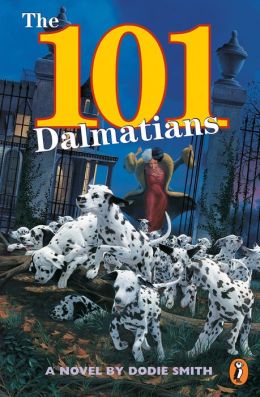
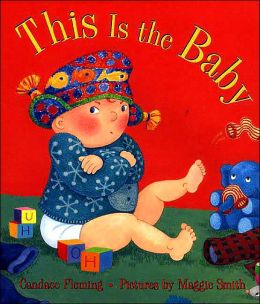

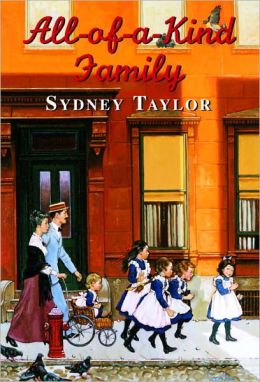
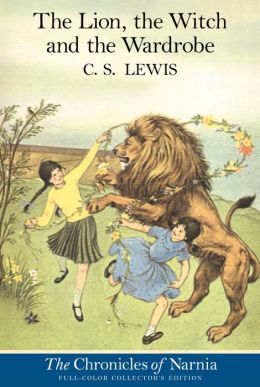
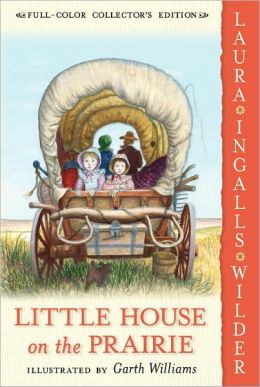



I read this one when I was growing up, and read it to my oldest two daughters. Seeing your review reminds me I need to read it to my youngest...it is a great book.
I definitely need to reread this book. Thanks for your review reminding me.
I remember this series with great affection. I discovered it as an adult when I read it to my kids.